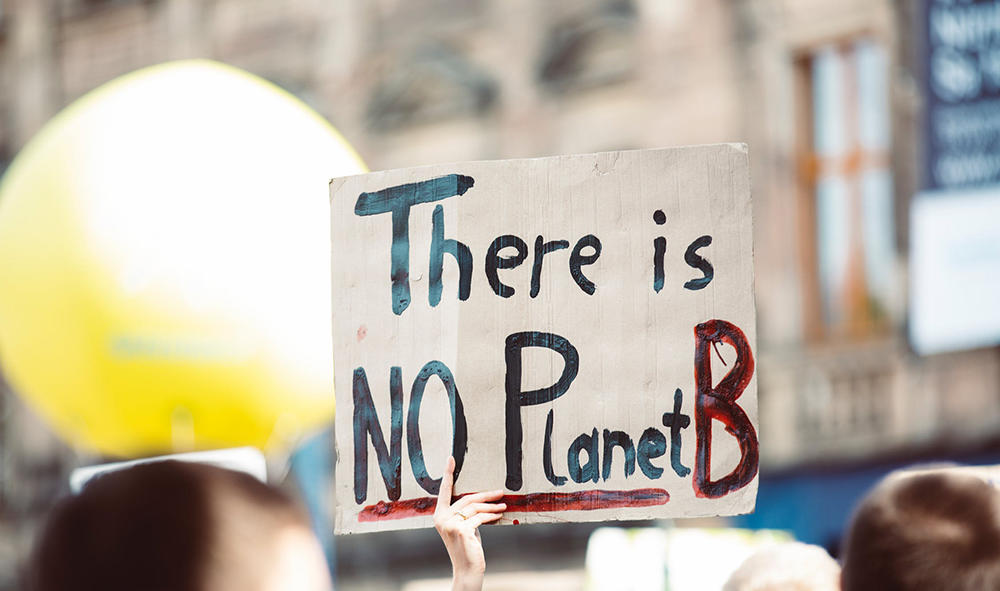Environmental Issues
WE MUST TAKE ACTION ON CLIMATE CHANGE NOW

“Scientists have a moral obligation to clearly warn humanity of any catastrophic threat and to “tell it like it is.” On the basis of this obligation and the graphical indicators presented below, we declare, with more than 11,000 scientist signatories from around the world, clearly and unequivocally that planet Earth is facing a climate emergency.”
This statement, published November 2019 in an open letter in the journal BioScience, is a bold warning that climate change is here. Endorsed by 11,000 scientists from around the world, the letter is a concise and clear warning that there will be untold human suffering if world leaders do not combat climate change now.
The findings outlined in this letter show that the climate crisis is closely linked to excessive consumption. In other words, countries with the greatest amount of wealth are mostly responsible for the human activities causing the greatest amount of emissions. These human activities include increases in livestock populations, meat production, global Gross Domestic Product (GDP), global tree cover loss, fossil fuel consumption, the number of air passengers carried, and carbon dioxide (CO2) emissions.
How do we turn these troubling findings around to secure a more sustainable future? The scientists in this letter state that we must first change how we live, starting at the top with governments and corporations who must make drastic changes to their policies. They found that in order to prevent the catastrophic scenarios outlined in their findings, the following actions:
Energy
Implement massive energy efficiency and conservation practices. Replace fossil fuels with low-carbon renewables. Leave remaining stocks of fossil fuels in the ground and carefully pursue effective negative emissions using technology such as carbon extraction from the source and capture from the air and especially by enhancing natural systems. Wealthier countries need to support poorer nations in transitioning away from fossil fuels. Eliminate subsidies for fossil fuels and use effective and fair policies for steadily escalating carbon prices to restrain their use.
Implement massive energy efficiency and conservation practices. Replace fossil fuels with low-carbon renewables. Leave remaining stocks of fossil fuels in the ground and carefully pursue effective negative emissions using technology such as carbon extraction from the source and capture from the air and especially by enhancing natural systems. Wealthier countries need to support poorer nations in transitioning away from fossil fuels. Eliminate subsidies for fossil fuels and use effective and fair policies for steadily escalating carbon prices to restrain their use.
Emissions
Reduce the emissions of short-lived climate pollutants, including methane, black carbon (soot), and hydrofluorocarbons (HFCs). Doing this could potentially reduce the short-term warming trend by more than 50% over the next few decades while saving millions of lives and increasing crop yields due to reduced air pollution.
Reduce the emissions of short-lived climate pollutants, including methane, black carbon (soot), and hydrofluorocarbons (HFCs). Doing this could potentially reduce the short-term warming trend by more than 50% over the next few decades while saving millions of lives and increasing crop yields due to reduced air pollution.
Food
Reduce the global consumption of animal products, especially ruminant (i.e., cattle) livestock. This can improve human health and significantly lower greenhouse gas (GHG) emissions. Free up croplands for growing much-needed human plant food instead of livestock feed. Implement agricultural practices such as minimum tillage that increase soil carbon. Reduce the enormous amount of global food waste.
Reduce the global consumption of animal products, especially ruminant (i.e., cattle) livestock. This can improve human health and significantly lower greenhouse gas (GHG) emissions. Free up croplands for growing much-needed human plant food instead of livestock feed. Implement agricultural practices such as minimum tillage that increase soil carbon. Reduce the enormous amount of global food waste.
Nature
Stop habitat and biodiversity loss, protecting the remaining primary and intact forests, especially those with high carbon stores and other forests with the capacity to rapidly sequester carbon. Increase reforestation where appropriate at enormous scales.
Stop habitat and biodiversity loss, protecting the remaining primary and intact forests, especially those with high carbon stores and other forests with the capacity to rapidly sequester carbon. Increase reforestation where appropriate at enormous scales.
Economy
Shift economic goals away from GDP growth. Stop excessive extraction of materials and overexploitation of ecosystems. Put in place policies that guide economic decisions towards a carbon-free economy that explicitly addresses human dependence on the biosphere.
Shift economic goals away from GDP growth. Stop excessive extraction of materials and overexploitation of ecosystems. Put in place policies that guide economic decisions towards a carbon-free economy that explicitly addresses human dependence on the biosphere.
Population
Stabilize and reduce the world’s population within a framework that ensures social integrity. Implement policies that make family-planning services available to all people. Make primary and secondary education a global norm for all, especially girls and young women.
Stabilize and reduce the world’s population within a framework that ensures social integrity. Implement policies that make family-planning services available to all people. Make primary and secondary education a global norm for all, especially girls and young women.
The findings outlined in this letter show that the climate crisis is closely linked to excessive consumption.
As individuals, how can we begin to take action from the bottom up? Here are a few things you can do right now:
Energy
- Replace traditional light bulbs with LED bulbs
- Turn off lights and appliances in the house when not in use
- Use a programmable thermostat
- Choose renewable energy to power your home if possible
- Add solar panels to your home
- Consult your power company for more tips
Emissions
- Walk, bike or take mass transit instead of driving
- Carpool and/or combine trips in the car to drive the least amount possible
- Switch to an electric car
- Avoid flying, but if not possible, be sure to offset your carbon emissions
- Reduce and reuse – 29% of greenhouse gas emissions result from the consumption of stuff
- Buy locally and avoid heavily packaged items
- Choose slower shipping methods when ordering online
Food
- Eat more vegetarian meals each week
- Swap milk and butter for non-dairy alternatives
- Buy organic food
- Purchase just what you need
- Compost your food waste
Nature
- Don’t buy products made from shells, fur, bone or other animal products
- Buy only FSC® certified wood products
- Reduce your paper consumption by avoiding printing
- Buy home paper products made from recycled paper, or other sustainable sources like bamboo or sugarcane
Economy
- Support businesses that produce sustainably-made products
- Look for sustainability certifications on the products you buy like B Corps., Fair Trade, Certified Organic, Certified Carbon Free
- Reduce your overall consumption
Population
- Support nonprofits that fund education and health care services for women and girls
- Consider population and consumption patterns when planning your own family
- Educate your kids on consumption and family planning








